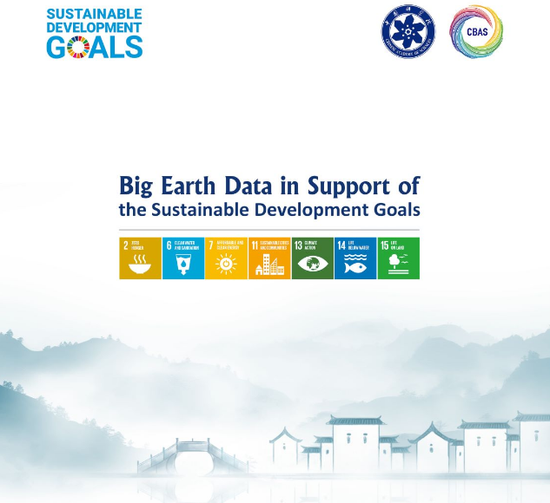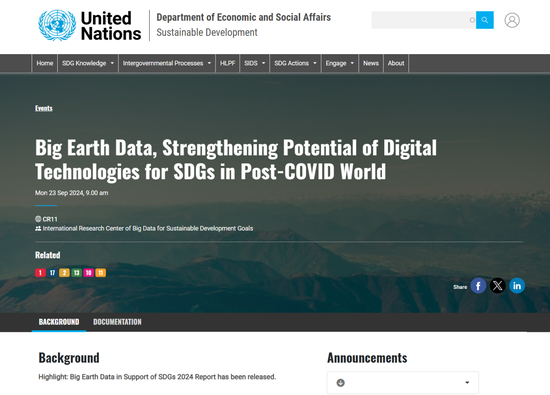
China has already achieved 126 indicators (55.5 percent) ahead of schedule of the UN 2030 Agenda, a significant increase from 2015, according to the latest report released by the International Research Center of Big Data for Sustainable Development Goals (CBAS).

(Photo: screenshot of the report’s front cover)
Professor Guo Huadong, director-general of CBAS, gave a detailed introduction to the report during a press conference held on Wednesday.
Based on the Big Earth data, the report focuses on seven Sustainable Development Goals (SDGs) globally and 227 SDG indicators in China. It uses multi-source satellite remote sensing data and AI algorithms to conduct quantitative assessment.

Professor Guo Huadong, director-general of CBAS (Photo: courtesy of the CBAS)
Facing the SDG indicator monitoring and evaluation demand, the research team has published this annual report titled “Big Earth Data in Support of the Sustainable Development Goals” and developed data products for six consecutive years.
“This represents a key contribution by Chinese scientists to advancing research, enhancing decision-making, and promoting global sustainability,” Guo said.
Although global progress on some indicators has been slow, the report points out that China has made significant contributions over the years to industrial energy conservation and carbon reduction, the development of renewable energy, and ecological restoration.
From 2017 to 2021, the number of industrial heat sources globally decreased by 9.05 percent, with China contributing 33.61 percent of this reduction. Between 2000 and 2023, the global deployment of offshore wind power saw significant growth, with China being the main driving force.
In addition, the report forecasts the progress of the seven SDGs and all environmental indicators by 2030 -- based on the current trend, China is likely to meet or come close to achieving SDG 7 (Affordable and Clean Energy) and SDG 11 (Sustainable Cities and Communities).

(Photo: screenshot of the UN website)
The report received widespread recognition for its practical approach to guiding efforts towards achieving SDGs. Csaba Kőrösi, president of the 77th UN General Assembly, commended the report for providing clear and useful information to both scientists and policy-makers. He noted that data-based monitoring and evaluation enhance people’s understanding of future challenges, thereby guiding the UN 2030 Agenda and follow-up actions.
Chandranee Rughoobur, statistician of the Mauritius Statistics Bureau, and Lawrence Duguman, first assistant secretary of the Department of National Planning and Monitoring of Papua New Guinea emphasized that this report is essential to Small Island Developing States as it offers them innovative data support crucial for sustainable development.
So far, the UN 2030 Agenda has passed its halfway point. (ECNS)

86-10-68597521 (day)
86-10-68597289 (night)

52 Sanlihe Rd., Xicheng District,
Beijing, China (100864)

